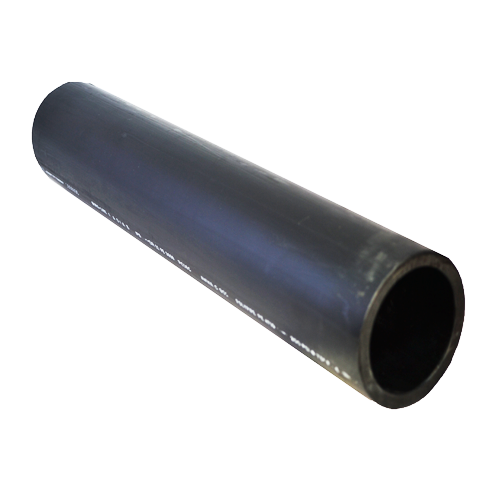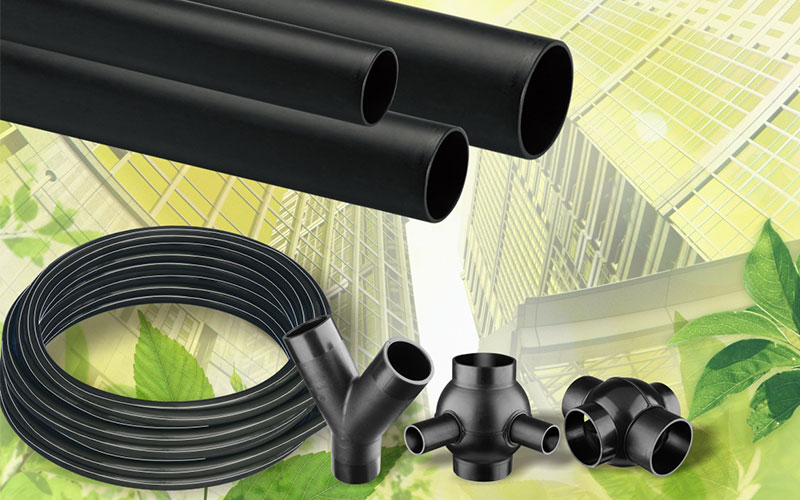Why Partnering with Pipe Supplier American Plastics Midland Ensures Trusted Solutions
A Comprehensive Overview to the Different Uses of HDPE Pipeline in Building And Construction and Industry
HDPE pipes have actually emerged as a critical component in contemporary building and construction and commercial applications. Their one-of-a-kind homes, such as resistance to corrosion and light-weight style, make them suitable for a large range of uses. From supply of water systems to farming watering, HDPE pipes use solutions that boost performance and sustainability. Understanding their diverse applications is vital for experts looking to enhance facilities. What particular benefits do these pipelines bring to each market?
Water and Distribution Solutions
Water and distribution systems are crucial components of metropolitan framework, commonly counting on high-density polyethylene (HDPE) pipes for their durability and efficiency. These systems transport drinkable water from therapy facilities to customers, making certain access and safety. HDPE pipelines are preferred for their resistance to rust, chemicals, and severe temperatures, which enhances their long life and lowers upkeep prices. In addition, their light-weight nature permits for easier setup and transport, making them optimal for different urban and country applications.
The versatility of HDPE pipelines enables them to be set up in tight spaces and around barriers, reducing the demand for considerable excavation (hdpe pipe in stock Midland TX). Their smooth indoor surface area reduces rubbing losses, boosting water flow rates. As cities continue to expand, the need for trustworthy water system systems enhances, placing HDPE pipelines as a sustainable remedy for modern framework jobs. Their tried and tested performance history makes them a preferred option among engineers and city planners alike
Wastewater Management and Treatment
Effective wastewater monitoring and therapy are vital for preserving public wellness and environmental quality. HDPE pipelines play an essential function in this procedure as a result of their sturdiness, resistance to corrosion, and capacity to withstand rough chemicals. These pipelines are typically utilized in various applications, consisting of sewer system, stormwater water drainage, and wastewater therapy facilities. Their light-weight nature promotes easier installment and transport, lowering labor prices and time.
On top of that, HDPE pipelines have a smooth indoor surface area that lessens friction loss, promoting effective circulation rates. They are also much less prone to leakages and failures contrasted to typical materials, guaranteeing that contaminants are included effectively. Their versatility permits for flexibility in various dirt problems, making them appropriate for diverse ecological settings. As markets progressively prioritize lasting techniques, using HDPE pipelines in wastewater administration systems lines up with goals for lowering ecological influence and boosting source recovery.
Agricultural Watering Solutions
In farming settings, efficient irrigation solutions are vital for optimizing plant returns and managing water sources. HDPE (High-Density Polyethylene) pipes play an essential function in contemporary irrigation systems due to their sturdiness, flexibility, and resistance to corrosion. Their capacity to endure high pressures makes them ideal for both surface and subsurface irrigation applications, making sure consistent water circulation across fields.
Farmers can use HDPE pipes in drip irrigation systems, which supply water directly to plant roots, lessening waste and promoting healthy growth. In addition, these pipes are lightweight and very easy to mount, lowering labor prices and setup time. Their lengthy life-span and low maintenance needs even more boost their charm in agricultural techniques.
HDPE pipes are ecologically pleasant, as they can be reused and do not leach damaging chemicals into the dirt. This makes them a sustainable option for farmers aiming to embrace environment-friendly farming methods while making best use of performance.
Industrial Applications and Processes
Adaptability is a hallmark of HDPE pipelines, making them indispensable in numerous commercial applications and processes. These pipes are extensively used in chemical handling markets because of their outstanding resistance to a vast array of destructive substances. HDPE's lightweight nature, integrated with high tensile toughness, enables very easy installation and long-term efficiency sought after atmospheres.
In the oil and gas sector, HDPE pipes play an essential role in delivering hydrocarbons and gases, many thanks to their durability and flexibility - American Plastics HDPE Pipe for Oilfield. In addition, they are employed in mining operations for the transportation of slurry and other products, where typical piping systems may fail
HDPE pipes are increasingly utilized in making centers for water supply lines and wastewater monitoring. Their capacity to withstand severe temperatures and pressures makes them ideal for a selection of commercial processes. Overall, HDPE pipes add considerably to efficiency and safety and security across varied commercial applications.
Stormwater Administration and Drainage Systems
Stormwater administration and water drainage systems are crucial components in urban facilities, created to handle excess rainfall and lower flooding dangers. High-density polyethylene (HDPE) pipes are increasingly made use of in these systems due to their longevity, flexibility, and resistance to deterioration. These pipelines effectively transfer stormwater away from booming locations, lessening surface drainage and preventing waterlogging.
HDPE's light-weight nature facilitates easier installment, reducing labor prices and building time. Additionally, its resistance to chemicals and environmental stress factors assurances long life and integrity in various environments. In enhancement to traditional drain applications, HDPE pipes are additionally used in ingenious solutions such as environment-friendly framework, that includes rainfall gardens and permeable sidewalks.

Often Asked Questions
How Does HDPE Pipeline Contrast to PVC Pipeline in Cost?
As a whole, HDPE pipe often tends to be much more costly than PVC pipe because of its enhanced resilience and adaptability. Long-term price factors to consider, such as upkeep and lifespan, may prefer HDPE in details applications.
What Is the Life-span of HDPE Pipes Under Diverse Problems?
HDPE pipes generally have a lifespan of 50 to 100 years, depending on environmental problems, setup practices, and use. Factors such as temperature level, dirt type, and exposure to chemicals can considerably influence their toughness.
Can HDPE Pipeline Be Recycled After Usage?
Yes, HDPE pipelines can be recycled after usage. The reusing procedure includes thawing down the material, allowing it to be repurposed into new products, thus promoting sustainability and lowering ecological effect related to plastic waste.
Are There Any Specific Installation Difficulties With HDPE Pipes?
Installment obstacles with HDPE pipelines consist of appropriate jointing methods, making sure adequate trench conditions, and managing thermal expansion. Additionally, competent labor is needed to deal with customized tools, which can complicate the setup procedure in various environments.

What Qualifications Should I Seek When Acquiring HDPE Pipelines?
When acquiring HDPE pipes, one ought to search for qualifications such as ASTM, AASHTO, and ISO, which confirm quality and conformity with market standards, ensuring resilience and efficiency in various applications. - here Texas hdpe pipe manufacturer